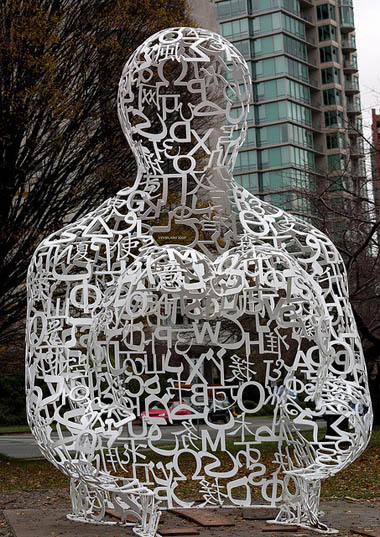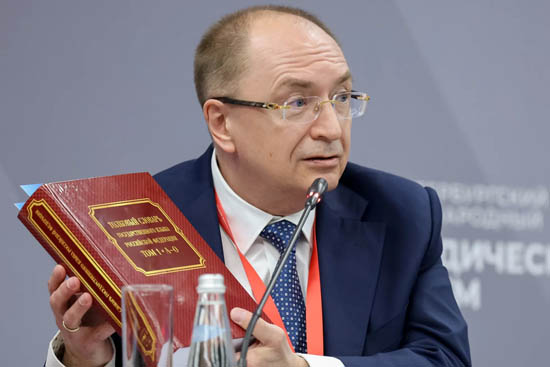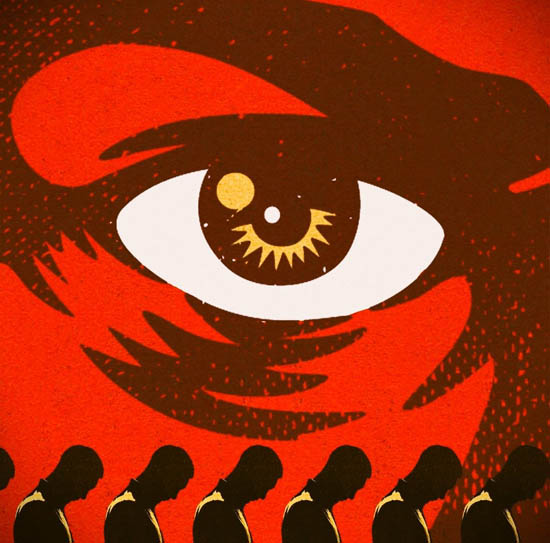“He who controls the language, controls thought.” Victor Klemperer: The Language of the Third Reich
“Control language, and you control thought.” George Orwell: 1984
“The limits of my language mean the limits of my world.” Ludwig Wittgenstein: Tractatus Logico-Philosophicus
“Language determines how we see the world and how we think about it.” Noam Chomsky: Essays
The Russian edition of the Barents Observer recently spotted the release of a new explanatory dictionary of the state language of the Russian Federation. The volume was issued by Saint Petersburg State University back in April, and in the same month, the government added it to the official list of normative dictionaries, reference books, and grammars. This is the list that state bodies are expected to follow in their work concerning the norms of modern Russian literary language.
The authors themselves note that some entries were coordinated with the Legal Department of the Russian Orthodox Church and the work was overseen by the Ministry of Justice. They openly state that these words “describe the content of traditional Russian spiritual and moral values” as defined in the presidential decree on state value policy.
Linguist Mikhail Kopotev from the University of Helsinki told The Barents Observer that the dictionary was put together “surprisingly sloppily”:
“The vast majority of definitions were copied almost word-for-word from the Great Explanatory Dictionary, while literally thousands of words are missing. If this were real lexicographic work, it could not have been published in this form.”
According to Kopotev, the publicly available versions of the state language dictionary contain only a fraction of the 130,000 definitions in the old 2000 edition of the Great Explanatory Dictionary. The The Barents Observer notes that in the new ʻstate dictionary,’ words such as faith, hope, love, Gulag, Stalinism, good are missing, and even truth is nowhere to be found.
Meduza, summarizing the Barents Observer article, illustrates with several entries how the editors and their sponsors try to root the “correct” ideology in the minds of readers and users through the “proper” definitions of words:
AUTHORITARIANISM, n. [from Greek (sic!) auctoritas, “authority”]. Politics. A form of government in which power is based on the authority of a particular individual, with limited public participation in major political, economic, and social decisions (cf. absolutism, autocracy). Considered the most effective form of government in difficult times for a country, as it allows diverse forms of property, is often supported by blocs of parties or movements, does not eliminate hostile forces, and permits the existence of non-traditional value systems.
ENEMY, n. One whom the supreme authority recognizes as an enemy of the people, government, or state. Ideological enemy. Bitter enemy. // One in a state of hostility or conflict with someone; opponent. To make an enemy. 2. Military enemy. Behind enemy lines. The enemy was defeated. The country was attacked by enemies. 3. Of something: a principled opponent of something. Enemy of smoking. Enemy of private property. 4. Something that causes harm. Obstruction is the enemy of progress.
HUMANISM, n. [from Latin humanus, “human”]. 1. A traditional Russian spiritual and moral value: a worldview based on the value of the human person, human dignity, respect and care for others, freedom, equality, and happiness; benevolence, humanity. The humanism in Chekhov’s stories. Voloshin’s humanism is linked to fatalism. Modern humanism is a historically specific form of humanity. 2. The ideological and cultural Renaissance movement opposing scholasticism and church dominance, teaching that humans are the highest value. Artistic humanism is historically determined. Renaissance humanism contributed to the development of visual arts.
DEMOCRACY, n. [from Greek dēmos, “people” + krātos “power”] 1. Exercise of power based on the consideration of everyone's opinion (in a state—all citizens); openness to public discussion and readiness for oversight; rule by the people. Forms and principles of democracy. Limiting or suppressing democracy. Democracy activist. Expanding or restricting democracy. In Western political practice, a form of government where citizens have certain rights and freedoms while state institutions act in the interest of the most influential actors (opposite of “rule by the people”). Sham democracy.
LIFE, n. 2. A traditional Russian spiritual and moral value; a person’s lifetime from conception through social formation to death. To cherish life. To value life. Life barely flickered within him. The weak pulse was the only sign of life. Losing life (dying). Deprive of life (kill). Pass away. Between life and death (severely ill or near death).
UNITY, n. 1. Integrity, indivisibility, cohesion. Unity of the public authority system. Unity of Belarusians, Russians, and Ukrainians. Unity of the peoples of Russia (a traditional Russian spiritual and moral value: a state in which different ethnic, national, cultural, or religious groups live in peace, harmony, and mutual understanding, guided by common interests, goals, and values). // Concentration of something in one place, time, or hands. Classical tragedy follows the principle of unity of place and time. Unity of military command.
IDEAL, n. [French idéal from Greek idea – image, concept] 1. The highest goal a people strives for, giving ultimate meaning to their activities and intellectual pursuits. Life ideal. Lofty, humanist ideals. Moral ideal (traditional Russian spiritual and moral ideal: high moral principles and convictions that guide a person toward goodness, justice, honesty, compassion, and other virtues, strictly rejecting destructive ideologies that allow immoral behavior, suffering, corruption, or other illegal actions).
FOREIGN AGENT, n. An individual or organization whose political activity is determined by a foreign state (or states) and which receives funding from that state (or states).
LESBIANISM, n. A sexual deviation involving the fulfillment of sensual desire of a woman toward another woman; female homosexuality.
LIMITROPH, n. [from Latin limitrophus, “borderland”]. Politics: In 21st-century Europe: a buffer state between Western Europe and Russia, politically, economically, and culturally incapable of independence. Borderland states. Borderland government. Originally referred to the Roman Empire’s frontier region supplying stationed troops. In the 1920s–30s, referred to states formed on the western edge of the former Russian Empire after 1917 (Latvia, Lithuania, Estonia, Poland, Finland).
REGIME, n. [French régime] 1. The set of political, economic, and social measures used by state power to govern society; form of government. Democratic regime. Reactionary regimes. Political or economic regime. The Kiev regime (the political leadership established in Ukraine since 2014, which poses a threat to the fundamental rights and interests of the Russian-speaking population).
RUSSOPHOBIA, n. [from russky + Greek phóbos – fear] Prejudiced, hostile attitude toward Russian citizens, the Russian language, culture, and traditions, manifesting in various forms of aggression or discrimination against Russians or Russian-speaking people. Political Russophobia. Opponent of Russophobia. Everyday Russophobia (negative attitudes toward Russians in everyday situations).
“Control language and you control thought.” If people—thanks to Russian state brainwashing—automatically attach these connotations to a concept, they naturally reach the conclusions suggested by the authorities and act accordingly.
How far we are from the real *1984*, when most Russians still could instinctively recognize that among the state newspapers, Известия (News) has no news, and Правда (Truth) has no truth.



No hay comentarios:
Publicar un comentario